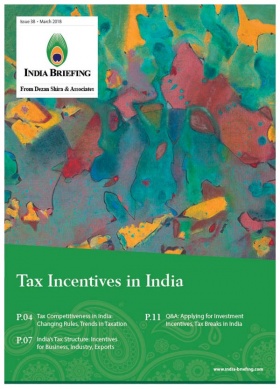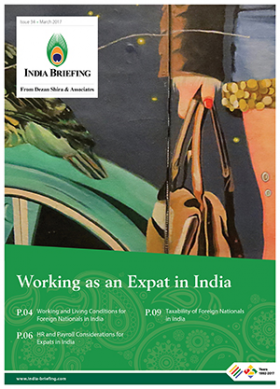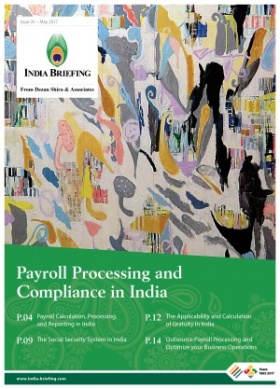Flexi-Staffing Industry in India: GST Impact, Regulations
The introduction of the Goods and Services Tax (GST) regime has increased the demand for temporary jobs and organized flexi-staffing firms in India. The flexi-staffing industry in India is worth approximately US$280 billion (Rs 27,000 crores), and is expected to develop in a positive way due to the impact of GST.
How does the flexi-staffing model work in India?
Flexi-staffing or contract labor refers to an employment model where employees are hired by a staffing agency (contractor), and lent out to work at and under the supervision of a user company (principal employer). In such a model, the principal employer does not have any direct employment relationship with the flexi-employees, although they may be liable to fulfill certain limited legal obligations.
In India, the flexi-staffing industry employs more than two million workers in the organized sector – the majority of whom are aged 21-30 years. Most flexi-employees are employed in jobs such as data operations, accounts, sales, back end operations, administration, and marketing.
How does GST impact the flexi-staffing industry?
Flexi-staffing in India is both organized as well as unorganized, with the latter having a pricing advantage due to exemption from service tax and compliance burdens. Under the pre-GST era, organized flexi-staffing agencies needed to comply with applicable labor laws, and pay service tax at the rate of 15 percent.
However, the GST regime changes this, bring in much needed pricing parity between organized and unorganized agencies by eliminating the pricing advantage enjoyed by unorganized agencies. The GST rate for staffing agencies is pegged at 18 percent for both organized as well as unorganized firms. GST rules also allow firms that avail services of staffing agencies to benefit from input tax credit. This benefit may only be availed if the staffing firm is registered and pays tax to the government.
Due to the input tax credit benefit under GST, it is expected that firms will move towards hiring from organized agencies, and unorganized agencies will be forced to become organized in order to survive in the market. This will make the industry move towards stricter compliance with applicable laws and improved working conditions.
What is the impact on doing business in India?
With the introduction of GST, hiring flexi-staffing services will be more cost efficient for companies doing business in India as it ensures easy dispensability of employees, relatively cheaper workforce, low monitoring and administrative costs, as well as input tax credit benefits.
Firms operating using new age technology such as machine learning, artificial intelligence, and blockchain as well as startups and firms engaged in emerging industries stand to gain from flexi-staffing as it helps them avoid the burden of hiring permanent employees in a volatile market, thereby minimizing liabilities.
Regulation of flexi-staffing in India
At present, the primary law in India regulating flexi-staffing is the Contract Labor (Regulation and Abolition) Act, 1970 and allied Rules. The Act applies to every establishment as well as every staffing agency, which has employed 20 or more contract workers in the preceding 12 months.
The key compliances under the Act are as follows:
- Registration of every covered establishment.
- Contract workers are to be paid in accordance with the minimum wage rate.
- Contract workers must be provided certain facilities such as safe drinking water and first-aid.
- The primary responsibility of providing these facilities lies on the staffing agency/ contractor. In case the contractor defaults in making payments or providing facilities, the burden falls on the principal employer. The principal employer has the right to claim reimbursements for such costs from the contractor at a later date.
Recently, some states such as Maharashtra and Madhya Pradesh have increased the applicability threshold of the Act to 50 workers in order to reduce compliance burden for employers.
Nevertheless, the staffing industry in India still views the current labor laws as restrictive and compliance intensive, calling for employer friendly labor reforms.
About Us
India Briefing is published by Asia Briefing, a subsidiary of Dezan Shira & Associates. We produce material for foreign investors throughout Eurasia, including ASEAN, China, Indonesia, Russia, the Silk Road, & Vietnam. For editorial matters please contact us here and for a complimentary subscription to our products, please click here.
Dezan Shira & Associates provide business intelligence, due diligence, legal, tax and advisory services throughout India and the Asian region. We maintain offices in Delhi and Mumbai and throughout China, South-East Asia, India, and Russia. For assistance with India investment issues or into Asia overall, please contact us at india@dezshira.com or visit us at www.dezshira.com.
- Previous Article Cryptocurrency in India: Usage and Regulation
- Next Article Reverse Charge Mechanism in the Import of Services under GST














